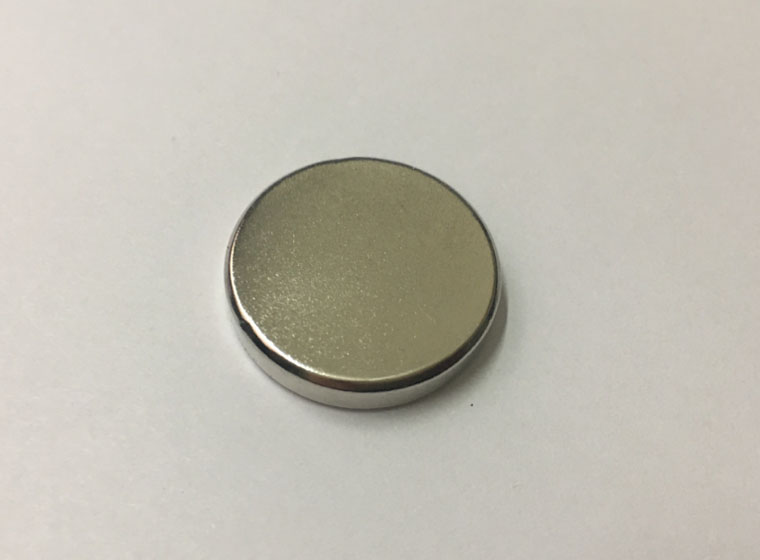The Gauss value (magnetic field strength) of a magnet is an important parameter to measure the magnetic properties of a magnet and is usually used to evaluate the magnetic force or application effect of a magnet, knowing the grade and size of the magnet how to calculate its Gauss value? Here is the answer to this question.
Calculating the gauss value of a particular magnet is not directly based on magnet grade and size, but requires more factors to be taken into account, here are some of the factors that affect the magnetic field strength at the surface of the magnet.
30x3mm round nickel plated NdFeB magnets

Magnet materials: Different magnetic materials have different remanent magnetism (Br), which is the maximum flux density that the material can maintain and is a key indicator of magnet strength. Common magnet materials include neodymium-iron-boron (NdFeB), samarium-cobalt (SmCo), aluminum-nickel-cobalt (AlNiCo) and ceramic (ferrite) magnets.
Magnet Shape: The shape (e.g., cylindrical, cubic, sheet, etc.) and size (length, width, thickness) of a magnet affects its surface magnetic field strength. For different magnet materials, different shapes can produce different magnetic field strengths for the same volume.
Magnetization direction: Magnets have multiple magnetization directions, and their apparent magnetic strength (Gauss) varies depending on the size of the magnet.
Surroundings: Nearby magnetic or magnetically conductive materials (e.g., steel) can alter the path of magnetic field lines around the magnet, thereby enhancing or weakening the surface magnetic field.
So far, there is no formula that can accurately calculate the Gauss value of a magnet. Although some magnet websites provide online Gauss calculation tools that can estimate the surface magnetic field strength (Gaussian value) of a magnet, these tools are often based on simplified models or average data, and are only for reference. The best way to know the Gaussian value of a specific magnet is to use a Gaussian meter or other precision magnetic field measurement instrument for measurement.
Following magnet gauss data may be helpful;
3mm neodymium disc magnets gauss and pull force strength
4mm Small Disc Neodymium Magnet Gauss and Pull Force Data
How many gauss and pull are 8mm diameter rare earth magnets?
 China Neodymium And Ferrite Magnets Manufacturer & Supplier
China Neodymium And Ferrite Magnets Manufacturer & Supplier 


